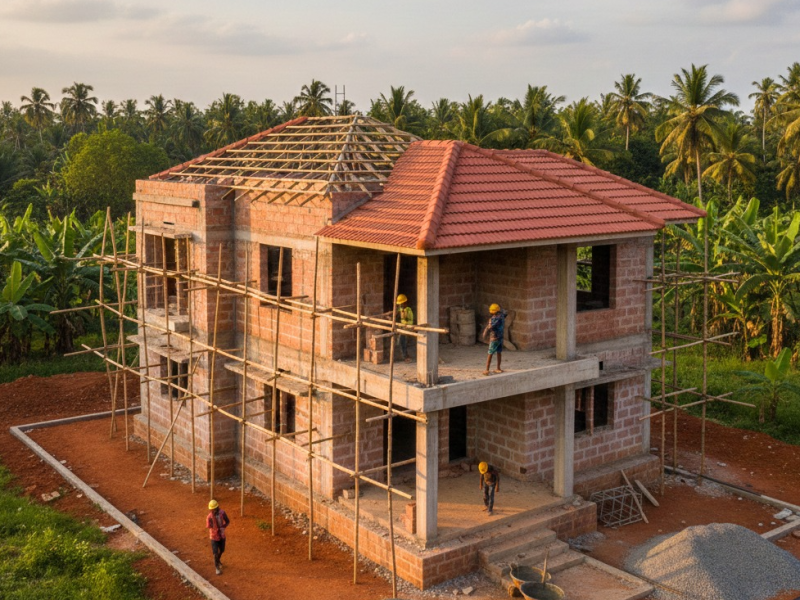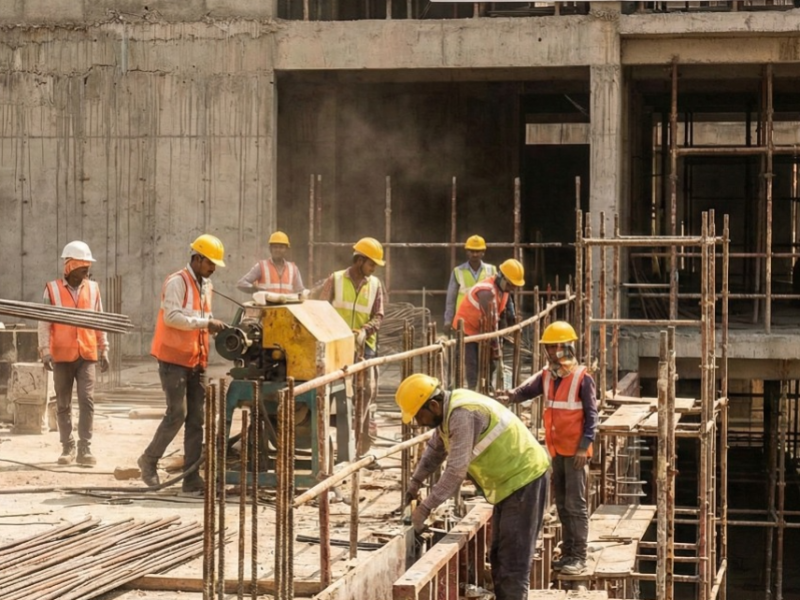A BOOSTER DOSE TO REVIVE THE REAL ESTATE SECTOR

A booster dose to revive the real estate sector
Early this year Amitab Bachan bought a luxury apartment in Mumbai for Rs31 crore, paying a paltry stamp duty of Rs 62 lakhs. The Bollywood actor just paid 2% stamp duty, taking advantage of the Maharashtra government’s stamp duty waiver of 60% from August 2020 to March 31, 2021.In Kerala the same transaction would have cost a stamp duty of Rs 3.1 crore!
The registration charge in Kerala is among the highest by any benchmark, nationally or internationally. A reduced stamp duty and temporary rebate or waiver could help jump start the stagnant real estate market in Kerala, increase the property transactions, construction activities and government revenue and unleash, monetise and channelise the unproductive cash trapped in the property market.
In August 2020, the Maharashtra government’s announcement of a temporary reduction of property registration stamp duty from 5% to 2% until December 31, 2020 acted as a booster dose to the stagnant real estate market, hit hard by the COVID-19. Stamp duty remained 3% from January 1, 2021 to March 31. Several celebrities, including Amitab Bachchan, Akshay Kumar, businessmen and professionals took advantage of the temporary stamp duty rebate and COVID-19-led price drop.
Maharashtra is not the only state that relied on the stamp duty rebate to stimulate the real estate sector. This was practiced by other states and developed nations as well. In an attempt to boost the property market, in May 2020, the Karnataka government cut the stamp duty charges in Bangalore from 5% to 3%, for properties in the range of Rs 21 lakhs to 35 lakhs. In Australia, state governments use temporary stamp duty rebate, waiver and grants to home buyers to stimulate the housing market.
Real estate sector along with construction is the largest provider of employment and a major source of taxes to the treasury. The sector has been braving rough weather for several years in the past, even during pre-Covid times. Transaction volume and tax collection dropped significantly. Any improvement in the sector will boost the state’s revenue, employment generation and will be a relief to the SMEs and banks.
Keralites’ investment culture is predominantly property oriented. Many with investable fund have been investing in properties for the past decades, which are now facing illiquidity. Unleashing this illiquid fund and channelising them to the productive businesses will stimulate economic activities and job creation.
Many builders are faced with huge unsold stocks and defaulted bank loans. A movement in the market will help them sell their stocks and service the loans.
Banks’ lending to the builders and SMEs on the collateral security of the properties are now faced with high level of nonperforming assets (NPA) and loan write offs. Stimulating the sector will help banks to realise their loans, reduce NPA and improve the demand for credits from buyers.
With a massive reduction in the property transaction, government’s registration revenue dropped significantly. As per the revised estimate, expected registration revenue for 2020-21 is Rs 361.2 crores, which is 13% less than actual revenue of Rs 414. 23. Crores in 2019-20. Administering a booster dose to the sector and unlocking the tied-up capital will have a ripple effect on the government revenue, employment generation, injecting capital into the SME sector, improving banks NPAs and demand for credit, improve the ease and cost of doing business and incentivising better legal compliance.
The government may announce a temporary 60% waiver on the stamp duty for 6 months, a higher rebate (75%) if the registration value is higher than the fair value and a complete waiver for first home buyers. Data shows that a reduction in the stamp duty increased the stamp duty collection. For example, in Maharashtra, the government’s revenue from property registrations during the seven months after the lower stamp duty period until March 2021 were 66% higher than the collection during the preceding 8 months. This indicates that the reduction in stamp duty was compensated by a rise in the sales volume, thereby leading to higher revenue generation.
Additionally, the increased construction activities will further spur job creation and taxes to the exchequer. Additionally, widening the narrow interior roads around the strategic commercial areas like infopark, techno park, airports, city corporation limits etc can create momentum for the properties in such areas and higher FAR, better space utilization, and improved commercial activities around.
Recently came across a report on a Malayalee couple in UK who couldn’t sell the house, trying to dispose it through raffle prize. In a state where one of the major sources of the government revenue is lottery and where groups of Malayalees jointly purchasing UAE online lottery tickets regularly, and in an era of crowd-funding, the government may explore the possibility of introducing such lottery for enabling the sale of properties. The government should consider appropriate legal framework under the RERA.

CA Francis Mathew
(The writer is a chartered accountant, formerly with Asian Development Bank; email: fmathewca@gmail.com)




